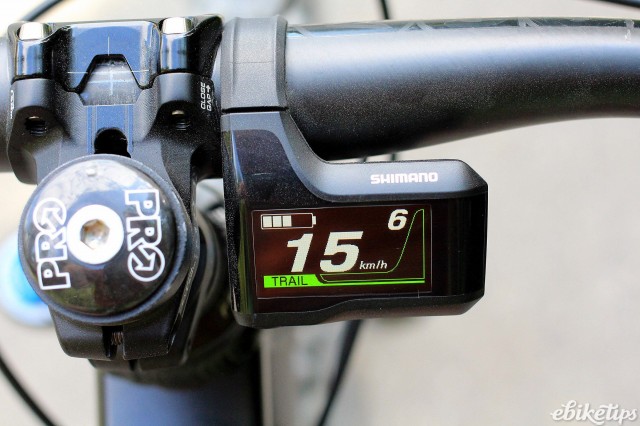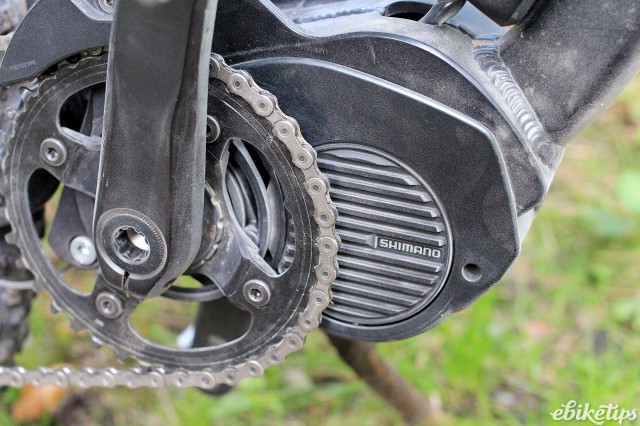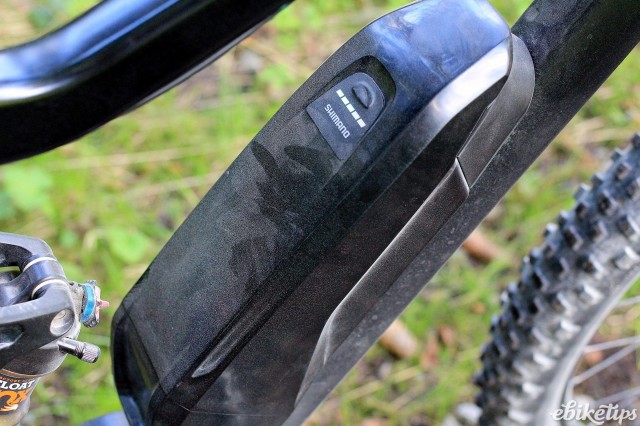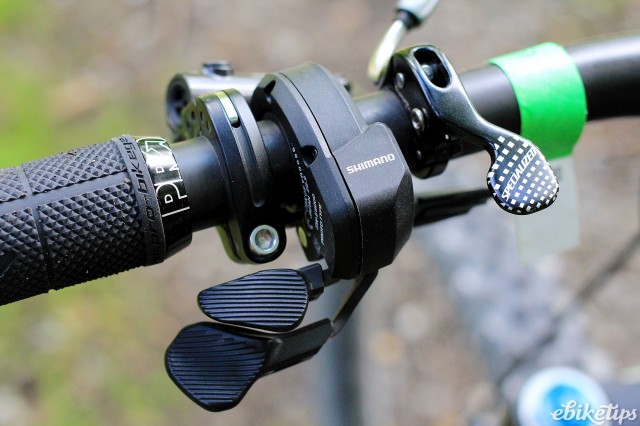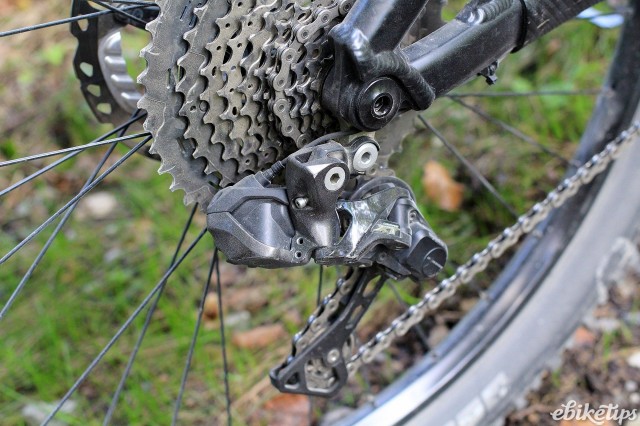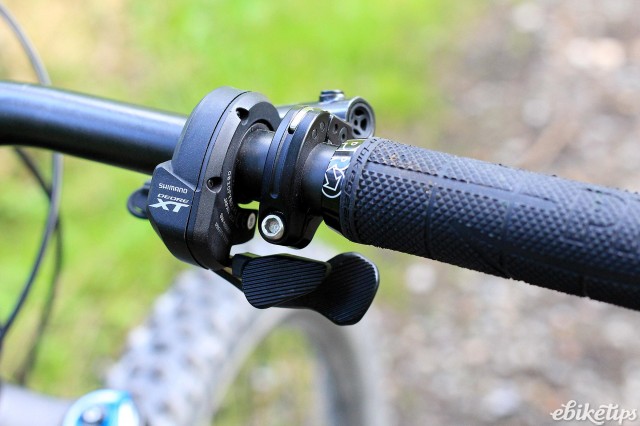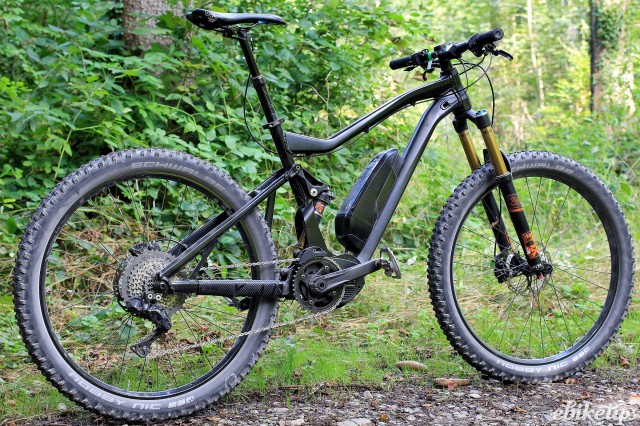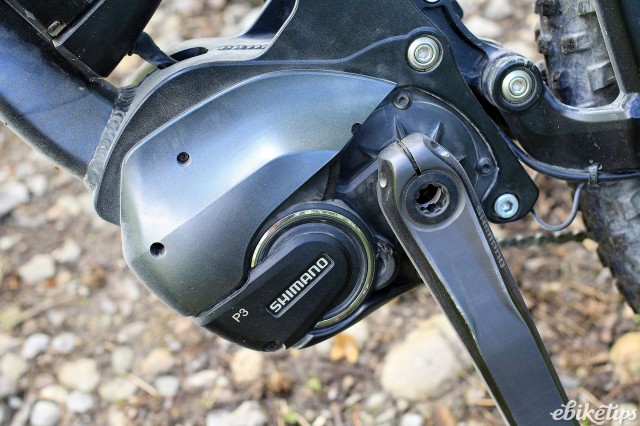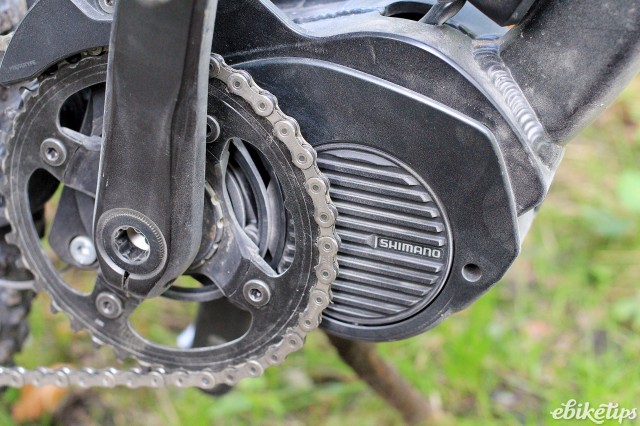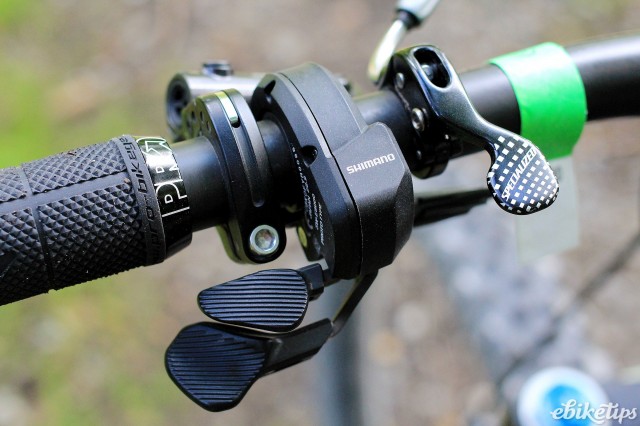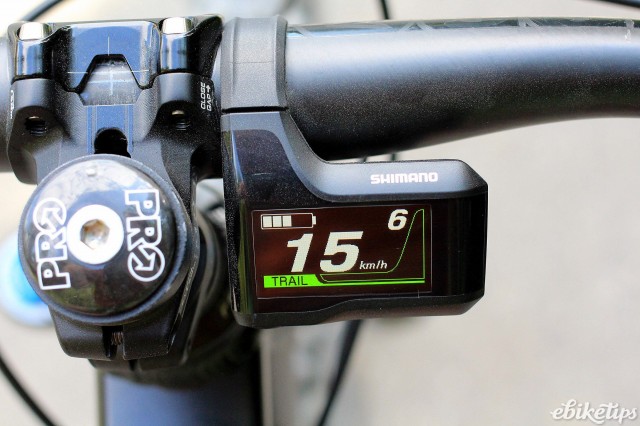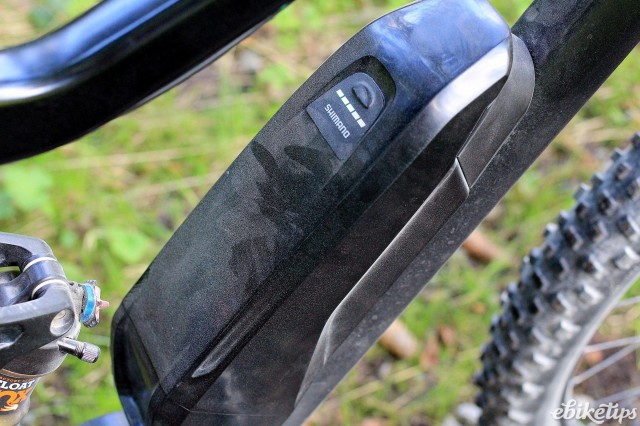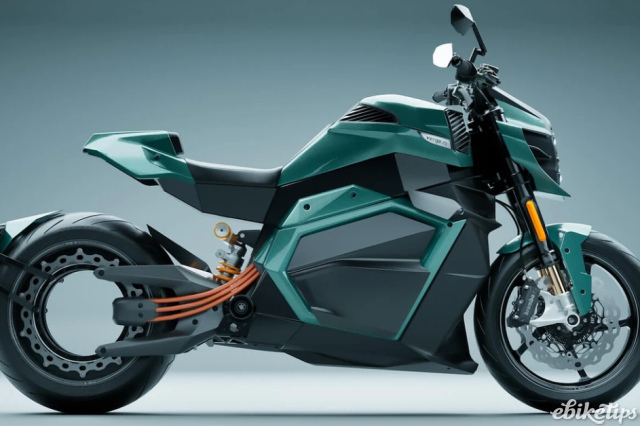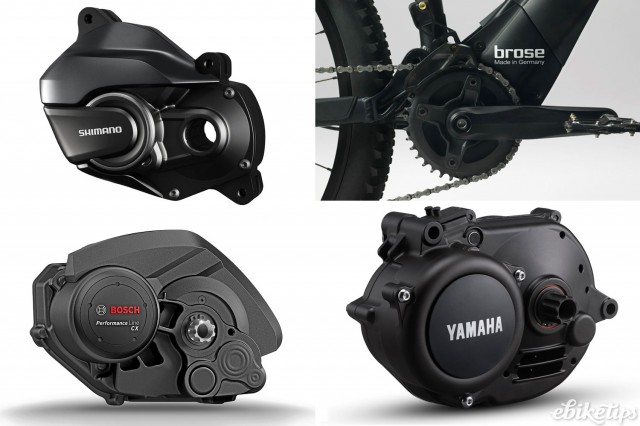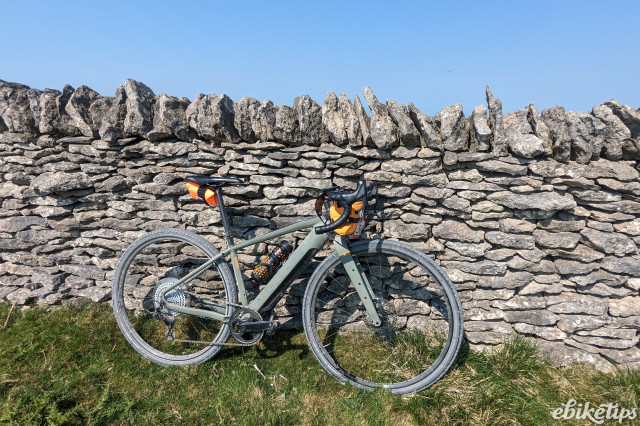Shimano STEPS E8000
Overview
- Powerful motor
- Tactile switching
- Easy to read display
- Gap between Trail and Boost modes a bit big
We've been out testing the new Shimano STEPS E8000 e-MTB drive system out at Eurobike. And we're impressed: the system is powerful and easy to use with a tactile interface and a neat display. The gap between the Trail and Boost modes takes a bit of getting used to, but that should be user-configurable and as a whole the system performed really well: it's a serious challenger to the dominance of Bosch Performance Line CX.
Motor unit: compact and powerful
The E8000 drive unit packs a punch: it's rated at 250W continuous power, as all EU-standard motors are, but it puts out 70Nm of peak torque, suggesting its peak power output is some way north of that. It's a compact unit, and it's designed such that the bottom bracket axle sits well back in the motor shell which allows manufacturers to build bikes with short chainstays for better trail handling. The cranks are connected to the chainring, so there's a 1:1 ratio between the pedals and the chainring unlike the Bosch motor. You can choose between a 34T and a 38T chainring; what range that will give you at the back will depend on what groupset and cassette you use, but with the power available you shouldn't ever struggle for gears. There's an optional chain retention device as part of the system.
Battery: high capacity with integrated option
Integration is a key theme in electric mountain bikes at the moment and the Shimano battery comes in two incarnations. There's a standard down-tube-mounted battery, and one that's designed to be mounted internally in the frame. Both have the same capacity of 504Wh, the same as the bigger Bosch batteries, and that should be enough for some long and hilly rides. The battery is rated to 1,000 charging cycles and it's possible to charge it to 80% in two hours, with a full charge taking five.
Controls: colour display, physical switching
The display and remote of the Shimano system is where it's most different from the other mid-drive MTB options out there. The remote works like a RapidFire shifter, with two paddles to change up and down through the three modes: Eco, Trail and Boost. Instead of using a centrally-mounted display Shimano have instead opted for a colour display that sits just behind the bars. It shows system information and gives you basic computer functions too; if you're running Shimano's Di2 gearing it'll also tell you what gear you're in. The display also serves as a Bluetooth link to Shimano's E-TUBE platform, which allows you to configure and update your system via a tablet or smartphone.
In use: high quality drive with tactile control
Given the success of the STEPS platform on the road I wasn't expecting Shimano to get the mountain bike version too wrong, and the E8000 system is excellent in terms of its torque sensing and power delivery. The application of power feels very natural, with the motor responding intelligently to both torque and cadence. It feels a bit less affected by cadence than the Bosch system: it occupies the middle ground between that and the more torque-heavy systems from Brose and Yamaha. Of all the systems, it's probably the most natural-feeling when it's in one of the two lower power modes. It's not noisy either: the belt-drive Brose motor is still the quietest of the big MTB drives but the Shimano is no noisier than Bosch or Yamaha drives.
Changing between the modes using the paddle shifter is great, a much more tactile experience than feeling for a button on a remote. Bosch's new Purion display can be a bit fiddly when changing between modes, and the Intuvia/Nyon remote is the opposite, with occasional accidental shifts when you lean on the remote. The Shimano solution is easily the best I've tried: the shift is a positive, physical action. You're never in any doubt about whether you've shifted, and it's pretty much impossible to do it by accident.
The display changes colour depending on which mode you're in: blue for Eco, green for Trail and yellow for Boost. That's simple to remember and it means you can see what mode you're running with just the merest glance at the display. I was worried that the colour backlit display would struggle in bright sunlight, but I had no issues at all.
The Eco and Trail modes are excellent for pretty much all trail situations. Find yourself at the bottom of something steep and grippy and you can step up to Boost for, well, a boost. There's a fairly big gap between Trail and Boost, bigger that I found comfortable at times. The Shimano modes map more or less to the Bosch ones, but where Bosch has a fourth mode, Sport, there's just a gap in the Shimano system that feels a bit wide. Given that you can configure the STEPS system through E-TUBE it's possible that you can tweak the power to your particular needs, although we didn't get the opportunity to do that during our testing.
We didn't manage to get through a whole battery's worth of power either, but with a similar battery size and maximum torque to the Bosch Performance Line CX system I'd expect a similar range: I've done a 45km ride in the mountains with 2,200m of climbing on that drive, mostly using the lower power modes. Judging by the amount of charge I used during testing I'd say a similar range is realistic from the STEPs battery.
The E8000 system integrates well with Shimano's Di2 electronic gearing. The Di2 shifter is the same design as the STEPS one, so having the two together feels natural. The Di2 gear information on the STEPS display can be useful too, although it's not necessarily something I miss when I don't have it.
Overall: excellent performance, will be a major player
There's no doubt that the STEPS e-MTB motor will be a big player in the market in the years to come. There's plenty of bikes here at Eurobike already speccing the drive and many manufacturers are including it alongside Bosch, Brose and Yamaha motors, or switching from one of those drives to Shimano. The high profile of Shimano in the market will help with uptake, but the main reason to look at a STEPS e-MTB is the fact that it's an excellent system, with great control and display functionality mated to a powerful motor and a big battery. Different motor systems have their pros and cons, and suit different riders; I'd say that Bosch, Shimano and Brose are probably just ahead of Yamaha at the moment in terms of the ride experience, although the Yamaha PW-X motor may change that. Which of those systems to choose will depend on personal preference but the STEPS system is definitely up there with the best.
